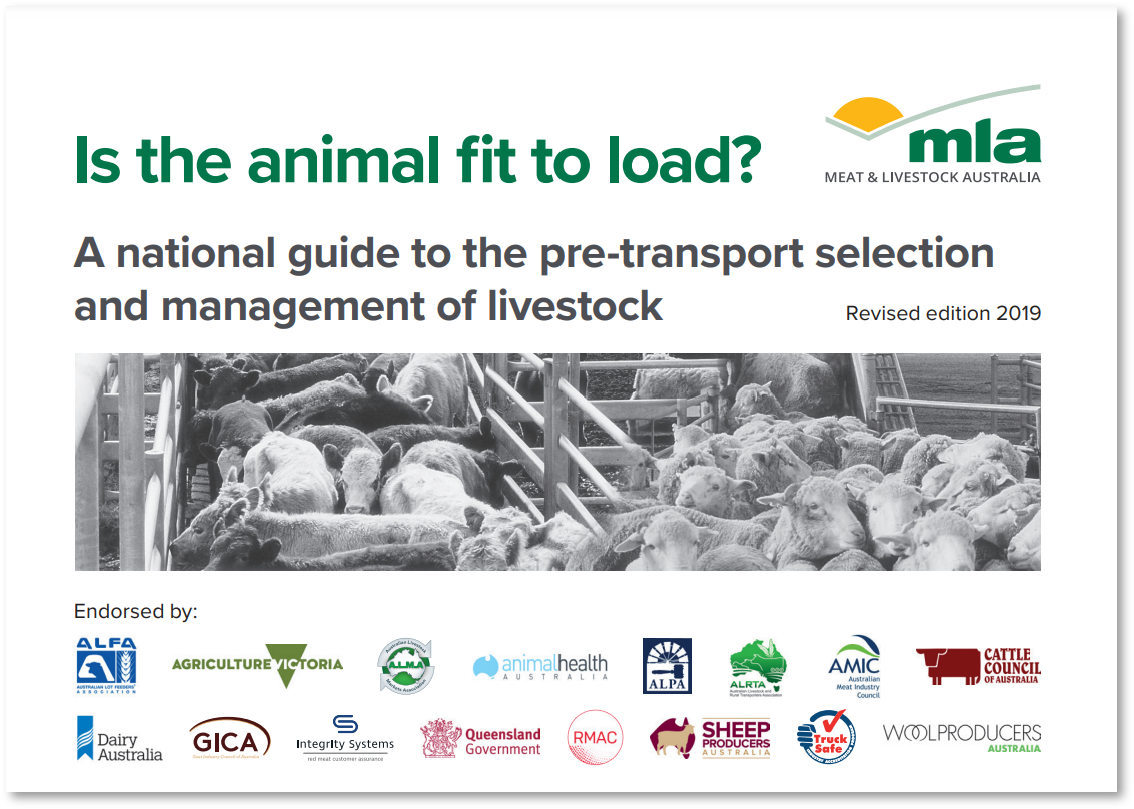Welfare
Animal welfare is essential for sustainable and profitable cattle production. It is also a legal responsibility.
The Australian Animal Welfare Standards and Guidelines for Cattle (PDF, 1.25MB), encourages humane management practices and sets minimum standards of treatment of cattle. The Guidelines informs people in charge of cattle of their responsibilities.
People responsible for cattle welfare are whoever is in charge of cattle throughout the supply chain and includes:
- owners
- representatives of owners
- property staff
- contractors
- transport workers
- saleyard and abattoir staff
- spelling establishment operators
- processors.
Whether cattle are produced through broadacre grazing or in intensive feedlots, owners/managers have a duty of care to ensure that animals’ basic needs are met. Based on the five freedoms for animals as outlined by the RSPCA owners and managers are responsible for providing:
- sufficient food and water
- appropriate living conditions
- an opportunity for cattle to display normal behavioural patterns
- protection from injury or disease and treatment if required
- appropriate handling.
Information available about key aspects of cattle welfare includes:
Handling | Transport | Live export
Extended dry seasons | Natural disasters | Animal welfare legislation
Handling
How an animal is handled has a major impact on their welfare and behaviour.
Excessive stress in cattle leads to reduced productivity, such as:
- low liveweight gains
- low conception rates
- low milk yields
- high pre-weaning mortalities
- high susceptibility to disease.
All animals have a large number of control mechanisms that maintain the steady state of the body and brain that is essential for life. Handling cattle, provides an overview of some basic cattle handling techniques, focussing on using the animal’s natural behaviours and responses to pressure.
Transport
Transporting animals can be a stressful experience. However, as responsible cattle handlers, there are a number of tasks, techniques and strategies that are used to minimise the impact this has on their wellbeing. Melinda Leeds, beef producer from Bundarra Farming Company (Western Australia), explains the techniques she uses, and what good practices mean to her.
There are a number of resources available to help make decisions when transporting cattle.
Is it fit to load: a national guide to the selection of animals fit to transport is a guide created by Meat & Livestock Australia. It was developed to help livestock operators meet the Australian Animal Welfare Standards & Guidelines for the Land Transport of Livestock and decide whether an animal is fit to be transported. The guide stipulates the roles and responsibilities of each person involved in transportation from the paddock to the destination, and examples of animals that are unfit to load.
This user friendly document is worth including in every induction and stored in every farm vehicle glove box.
Each state and territory has information on their relevant departments’ websites, however all animal welfare during transportation legislation and regulation is underpinned by the Australian animal welfare standards and guidelines – land transport of livestock.
Live export
The welfare of animals during live export is of paramount importance. The following resources highlight the efforts made to ensure high standards of animal welfare are maintained throughout the beef supply chain.
Exporter Supply Chain Assurance System (ESCAS), is an accountability framework in which exporters must ensure all components of the supply chain are handling the Australian animals to a predefined standard. ESCAS is based on animal welfare, control throughout the supply chain, traceability and independent auditing.
Similarly to the Is it fit to load? guide, Meat & Livestock Australia have produced another guide, specifically addressing concerns of live animal exports: Is it fit to export? (PDF, 3.62MB)
The Australian Government states that exporters much comply with the Australian Standards for the Export of Livestock (ASEL), as it sets out the minimum animal health and welfare standards exporters must meet throughout the export supply chain.
Extended dry seasons
Sometimes, pasture in the paddock doesn’t grow as quickly as anticipated, or as much as anticipated. It is at these times that graziers revise their feed reserves and make decisions as to whether they reduce the number of livestock they carry, or purchase additional feed. This publication, Managing cattle in dry conditions: Pastoralists’ options and animal welfare responsibilities (PDF, 684KB), from the Department of Primary Industries and Regional Development (WA), outlines the responsibilities of pastoralists during dry times.
The web page, Welfare of drought-affected livestock, from Biosecurity Queensland, outlines a grazier’s duty of care, potential management options that will reduce an animal’s dietary requirements (such as early weaning), and determining adequate food supply.
Natural disasters
The sudden onset of natural disasters such as flooding, bushfires and cyclones can severely impact the welfare of both people and animals. The best mitigation strategy is to have a plan.
This page, Animal welfare in natural disasters, from Biosecurity Queensland, outlines the factors that need to be taken into consideration.
Animal welfare legislation
Specific information about national, state and territory government animal welfare legislation can be found at:
